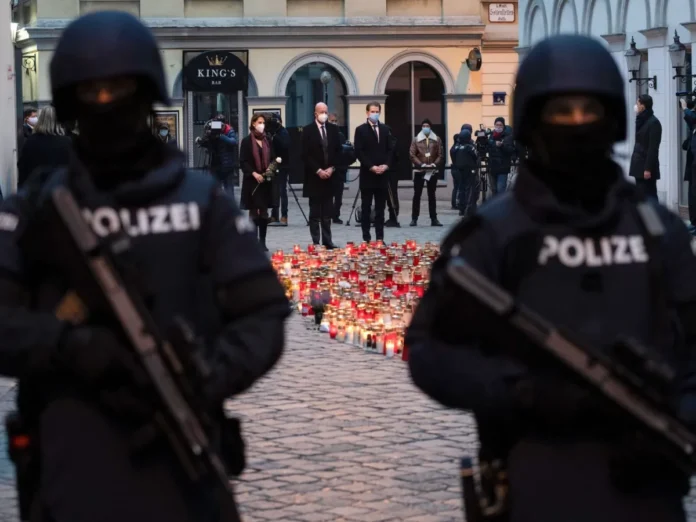Author: Lorenzo Vidino
Affiliation: Washington university
Organization/Publisher: Foreign Policy
Date/Place: November 11, 2020/USA
Type of Literature: Argument
Word Count: 1510
Keywords: Austria, France, Islam, Security, Terrorism
Brief:
How is it possible that a small alpine country like Austria has faced high levels of “jihadi” radicalization? Lorenzo Vidino begins his argument by questioning how Austrian authorities could so “easily” lose sight in the post-release phase of a formerly convicted perpetrator with connections to the Islamic State, as can be seen in the case of the recent terrorist attack in Vienna. He continues his argument by analysing the migration flows to Austria and states that refugees from especially the Middle East established the first “jihadi” platforms in the 1980s, followed by flows from the Balkans and from Chechnya. The country’s historically unsuccessful counterterrorism policy has changed since Chancellor Kurz has started his career as the Austrian Integration Minister. Kurz and his party (like the Austrian far-right party FPÖ) name Islam as a “moral threat to democratic life”, including its violent or nonviolent manifestations. The combat against Islam in Austria has taken various constraints since 2015: be it the revision of the Islam Act of 1912 that regulates the relationship between the state and the Muslim community (which is not the case with other religious communities in Austria), the monitoring of mosques, prohibiting foreign funding of domestic Islamic networks, and even examining influence of “Islamists” in the education system (as can be seen in the example of monitoring Islamic Kindergartens). In that regard, Kurz acted, as Vidino puts it, as a “precursor” to Emmanuel Macron. The author concludes by providing a very weak and vague “solution”: the Muslim majority, be it in Austria or France, should not see the “effort” of both states as “presenting Muslims as targets and undermining their rights”, but rather as “a goal of undermining extremists” and therefore should be supportive. In the whole argument, Vidino totally fails to present the sociological, socio economical, as well as political implications that the “scapegoating” politics that Kurz and Macron bring to the table. Hence, the author’s argument is completely one-sided, since he seems to “justify” the undemocratic ways of both states which are clearly restricting important principles of the rule of law: the equality of all members of a society and the freedom of religion.
By: Dilek Yücel-Kamadan, CIGA Research Associate




